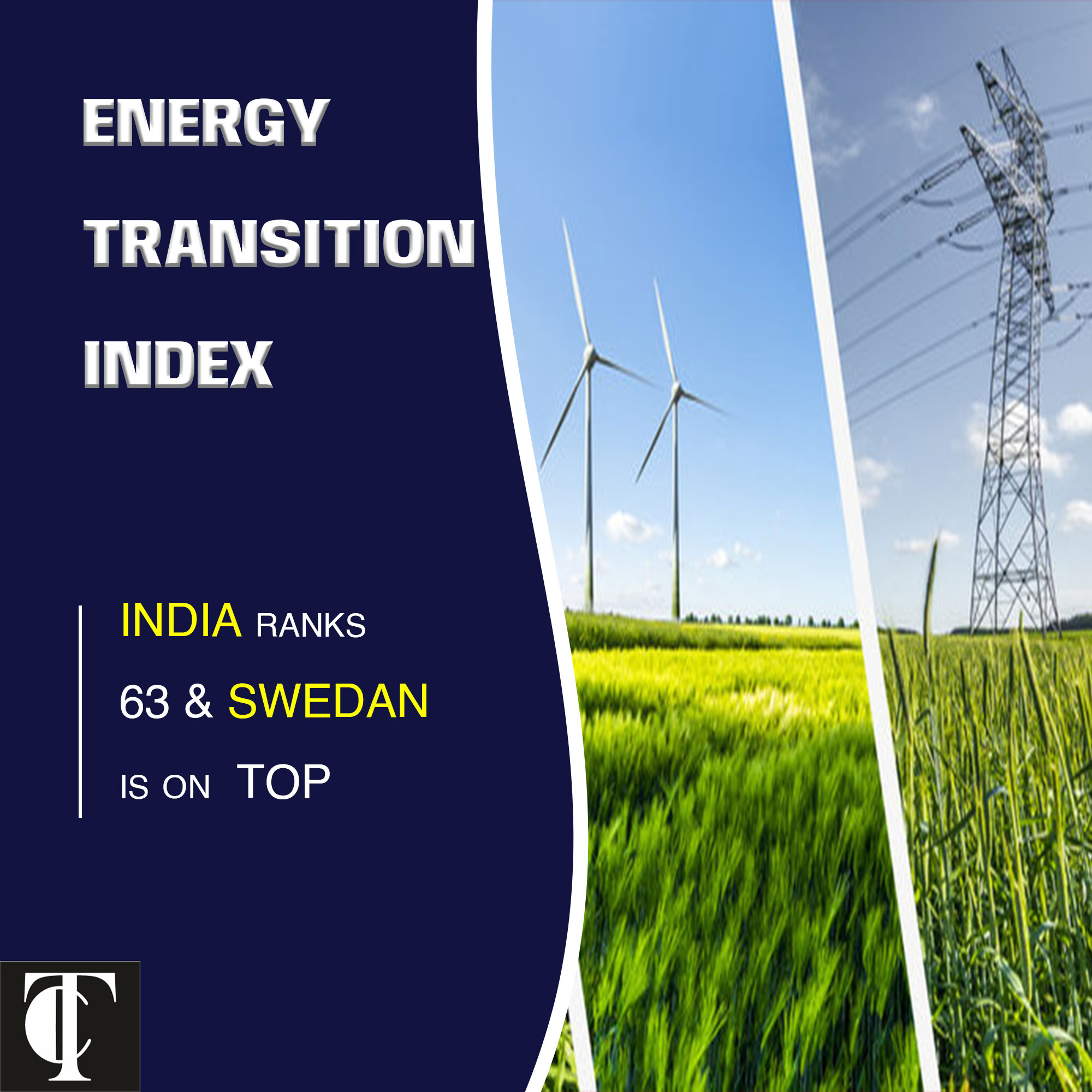IN SHORT
1. India ranked 63rd on the WEF’s Energy Transition Index 2023.
2. The index evaluates countries on energy security, sustainability, and economic development.
3. European nations led the rankings, with Sweden at the top.
4. 83% of countries regressed in at least one dimension from the previous year.
5. India showed progress in energy equity, security, and sustainability.
6. Renewable energy and biomass make up 42% of India’s power generation capacity.
7. India is advancing in electric vehicle adoption and green hydrogen production.
8. Significant coal dependence contributes to India’s emission intensity.
9. India’s per capita emissions are 1.7 metric tons of CO2, below the global average.
10. The WEF praised India’s efforts in leveraging energy for income generation and supporting microenterprises.
11. The overall global pace of the energy transition has slowed, with India and China playing critical roles.
India has been ranked 63rd on the Energy Transition Index 2023, released by the World Economic Forum (WEF) on June 19. The index evaluates countries on their progress toward secure, sustainable, affordable, and inclusive energy systems across three dimensions: energy security and access, environmental sustainability, and economic development and engagement.
Key Findings
- Top Performers: Sweden tops the ranking, followed by Denmark, Finland, Switzerland, and France. European countries mostly occupy the top places.
- Global Regression: Compared to the previous year, 83% of the 120 benchmarked nations experienced at least one of all three features of regression. This highlights the difficulties in finding a balance between the many aspects of the energy transition in the face of worldwide unpredictability.
India’s Performance
- Improvements: According to the WEF, India made advances in energy security, sustainability, and equity.
- Renewable Energy: With biomass and renewable energy making up 42% of India’s power generation capacity, the country’s clean energy infrastructure has improved dramatically. India is now the world’s fourth-largest market for renewable energy.
- Electric Vehicles and Green Hydrogen: Green hydrogen generation and electric car adoption are also being promoted by India, which is investing close to USD 10 billion a year in these areas.
Challenges
- Dependency on Coal: One of the key causes of India’s high emission intensity is the country’s heavy reliance on coal. Despite the fact that India’s per capita CO2 emissions are 60% less than the world average of 4.4 tons, the WEF underlines the necessity of making significant investments in energy efficiency in order to decouple growth from energy use.
- Excellent WorK: Microenterprises and Income Generation: India was commended by the WEF for its efforts to support microenterprises by utilizing renewable energy sources productively, leveraging energy for income generation, and ensuring that sustainable energy solutions are affordable and economically viable in order to benefit local communities and spur economic growth.
- Worldwide Context Slow Development: Over the past ten years, 107 nations have made progress in their energy transitions; nonetheless, the overall speed has decreased speed.
- China and India: Together, they account for over one-third of the world’s population. The research shows their essential influence in determining the course of the energy transition. Energy security, improved energy availability, and the expansion of renewable energy have all seen notable advancements in both nations. However, these nations—which are also well-positioned for green tech manufacturing—continue to have significant emissions due to the phase-down of coal.
READ ALSO : PM Modi Inaugurates New Nalanda University Campus


